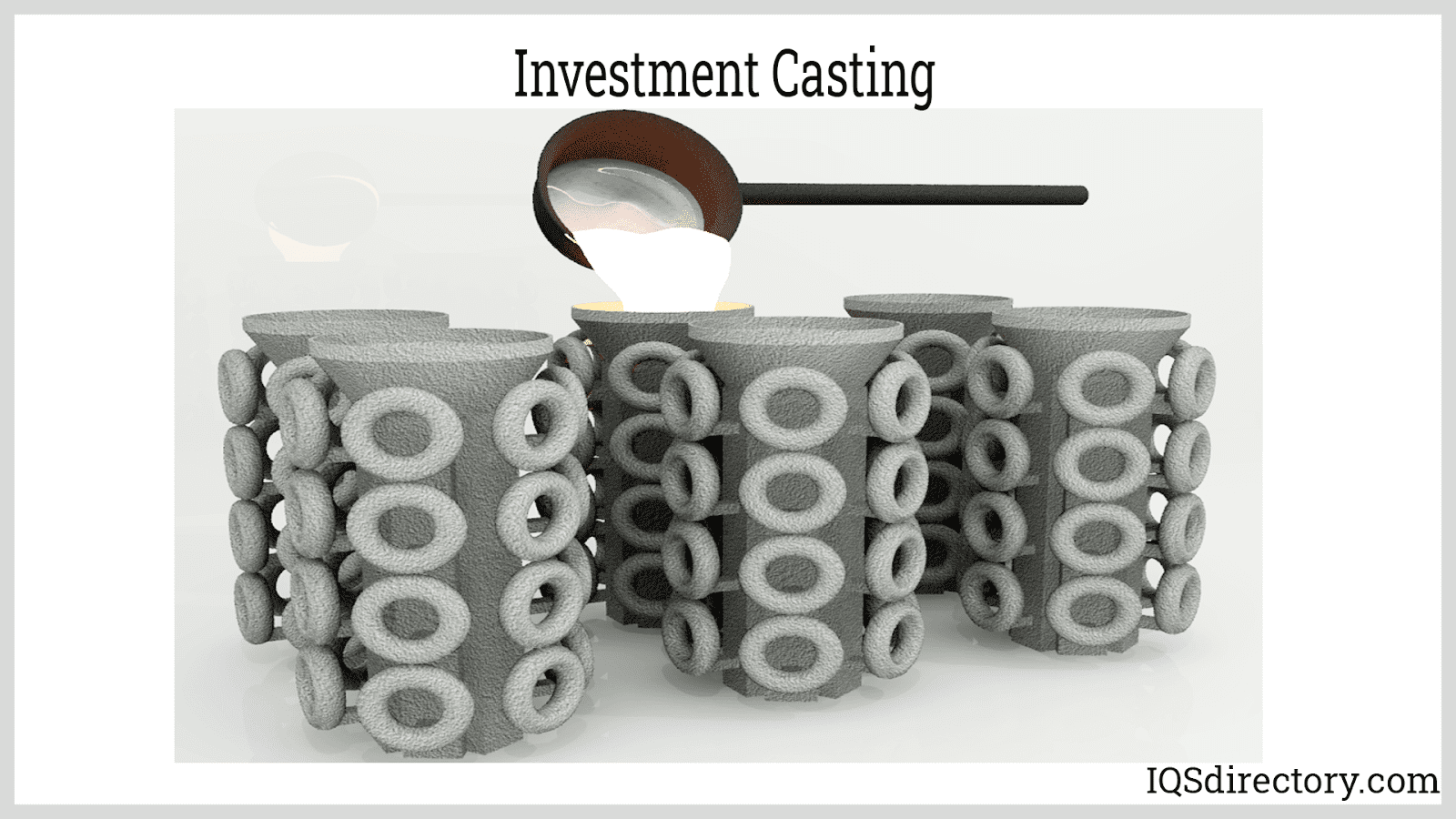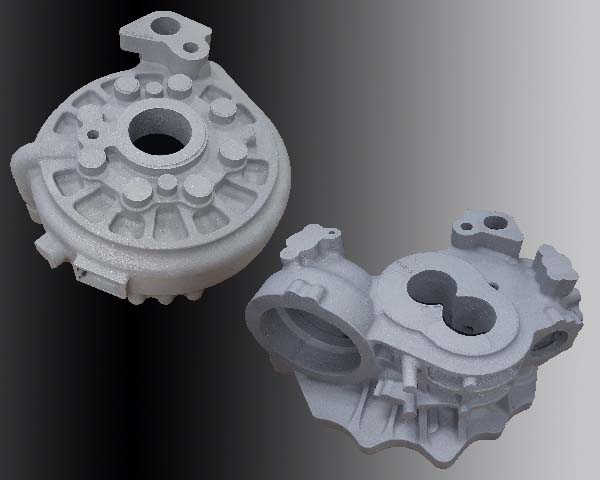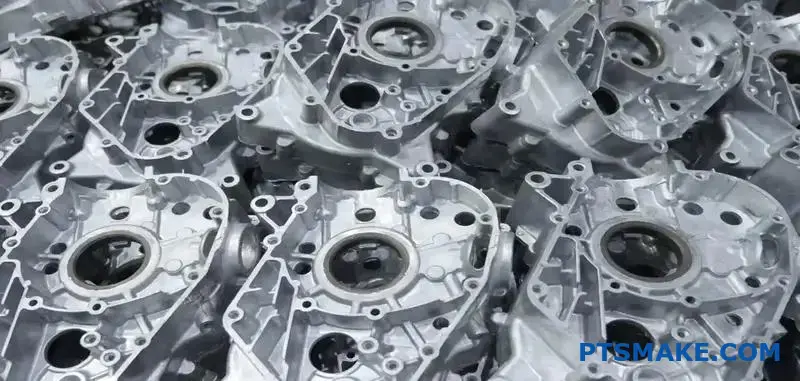Aluminum Casting Company solutions for custom manufacturing projects
Wiki Article
The Function of Light Weight Aluminum Foundries in Progressing Lightweight Manufacturing Solutions
Aluminum shops significantly add to the evolution of lightweight manufacturing remedies. Their cutting-edge spreading modern technologies yield high-strength, light-weight components necessary for sectors like automotive and aerospace. This improvement not only improves item performance however additionally promotes sustainability with using recycled products. As these factories adjust to arising innovations and techniques, they lead the means for future advancements in producing performance and environmental obligation. What exists ahead in this transformative journey?The Benefits of Lightweight Materials in Production
As industries progressively look for efficiency and sustainability, the adoption of lightweight products in production has emerged as an essential method - aluminum casting. These products, specifically aluminum and composites, use countless benefits that boost manufacturing processes and product efficiency. Primarily, their decreased weight contributes to reduce power intake throughout transport and operation, causing substantial price financial savingsLightweight materials facilitate the layout of even more complex geometries, enabling for better innovation in item growth. This adaptability often causes boosted capability and efficiency, catering to the evolving demands of modern-day customers.
Furthermore, the usage of lightweight materials can improve the long life of items because of their resistance to rust and exhaustion. This resilience not only decreases maintenance prices however additionally sustains sustainability initiatives, as longer-lasting items add to less waste. To sum up, the benefits of lightweight products are essential in driving effectiveness, advancement, and ecological duty in manufacturing.
Technologies in Aluminum Casting Technologies
Current developments in light weight aluminum casting modern technologies are reinventing the manufacturing landscape, specifically in the production of light-weight components. Advancements such as high-pressure die spreading and vacuum cleaner pass away spreading have considerably boosted the precision and surface coating of aluminum parts - Aluminum Foundry. These approaches enable the production of complicated geometries while minimizing product waste and boosting mechanical homes
Additionally, the implementation of real-time surveillance systems guarantees quality assurance throughout the spreading process, causing more constant item results. Collectively, these advancements not only enhance the efficiency of aluminum parts but likewise support the sector's change towards more sustainable manufacturing methods.
Applications of Aluminum Elements in Different Industries
While aluminum components have actually long been used in various sectors, their versatility and light-weight residential properties proceed to drive ingenious applications across sectors such as auto, aerospace, and building. In the vehicle market, light weight aluminum is significantly utilized for engine blocks, wheels, and body panels, enhancing fuel efficiency and performance. Aerospace manufacturers take advantage of light weight aluminum for aircraft structures and elements, exploiting on its strength-to-weight proportion to improve gas economy and payload ability.In the building and construction market, light weight aluminum is favored for home window frames, roof covering, and structural components, providing durability and resistance to corrosion while lowering general structure weight. Additionally, the electric and electronics markets take advantage of aluminum's conductivity and lightweight nature, using it in electrical wiring, units, and warm sinks. These diverse applications highlight the crucial role of aluminum parts, which not only satisfy sector demands yet also contribute to advancements in item layout and functionality across several fields.
Sustainability and Energy Performance in Aluminum Foundries
The aluminum shop sector plays a vital duty in advertising sustainability and energy effectiveness, particularly as need for light-weight elements proceeds to expand throughout different markets. Factories are progressively adopting environmentally friendly methods, such as making use of recycled aluminum, which significantly minimizes power intake and greenhouse gas exhausts compared to primary aluminum manufacturing.Advancements in casting innovations improve energy efficiency by optimizing the melting processes and decreasing waste. Methods like die casting and investment spreading permit for precise product use, lessening excess and scrap.
Additionally, numerous foundries are purchasing renewable resource resources to power operations, further lowering their carbon impact. Implementing power administration systems allows factories to keep an eye on and improve power use, guaranteeing they run at peak performance.

Future Fads in Lightweight Manufacturing Solutions
Just how will emerging modern technologies shape the future of light-weight production solutions? Innovations such as sophisticated materials, automation, and additive production are readied to redefine production procedures. The combination of smart manufacturing modern technologies, including the Net of Things (IoT) and expert system (AI), will enable real-time tracking and optimization, improving performance and reducing waste.
As sustainability continues to be an extremely important issue, light-weight remedies will increasingly concentrate on recycling and recycling materials, aligning with circular economic situation concepts. This evolution in light-weight manufacturing will not just boost item performance but additionally add to ecological objectives, ensuring that the market remains affordable in a quickly changing market landscape.
Often Asked Concerns
Just How Do Aluminum Foundries Make Sure Quality Assurance in Manufacturing?
Aluminum foundries ensure high quality control in manufacturing through rigorous screening, standardized treatments, and continuous surveillance - Precision aluminum casting. They apply experienced workers and advanced technologies to maintain uniformity, minimize defects, and fulfill market standards throughout the manufacturing procedureWhat Are the Main Tests Faced by Aluminum Foundries?
Light weight aluminum shops face difficulties such as fluctuating resources prices, keeping production performance, making sure regular high quality, adjusting to technological improvements, and conference environmental policies, every one of which impact their overall operational effectiveness and competition out there.Just How Does Aluminum Recycling Impact Shop Workflow?
Light weight aluminum reusing significantly boosts factory operations by reducing resources prices, lessening energy consumption, and reducing ecological influence. This sustainable practice allows foundries to enhance performance while satisfying raising need for lightweight, high-performance light weight aluminum products.What Abilities Are Needed for Workers in Aluminum Foundries?
Employees in light weight aluminum shops require skills in metallurgy, machining, quality assurance, and safety methods. Efficiency in running machinery, understanding alloy residential properties, and analytic are also vital for effective production and keeping high safety requirements.How Do Aluminum Foundries Take Care Of Waste Administration?
Aluminum factories take care of waste through recycling scrap metal, making use of efficient waste partition methods, and sticking to environmental guidelines. They implement lasting methods to lessen land fill payments, making sure that hazardous products are dealt with sensibly.Aluminum factories significantly add to the evolution of light-weight production options. Recent developments in aluminum casting modern technologies are changing the production landscape, specifically in the production of lightweight components. While aluminum elements have long been used in numerous markets, their adaptability and lightweight residential or commercial properties proceed to drive innovative applications throughout industries such as automobile, aerospace, and building. Additionally, the electric and electronic devices markets benefit from aluminum's conductivity and light-weight nature, utilizing it in wiring, rooms, and warmth sinks. The aluminum factory industry plays a crucial duty in advertising more info sustainability and power performance, particularly as demand for lightweight parts proceeds to grow across different markets.
Report this wiki page